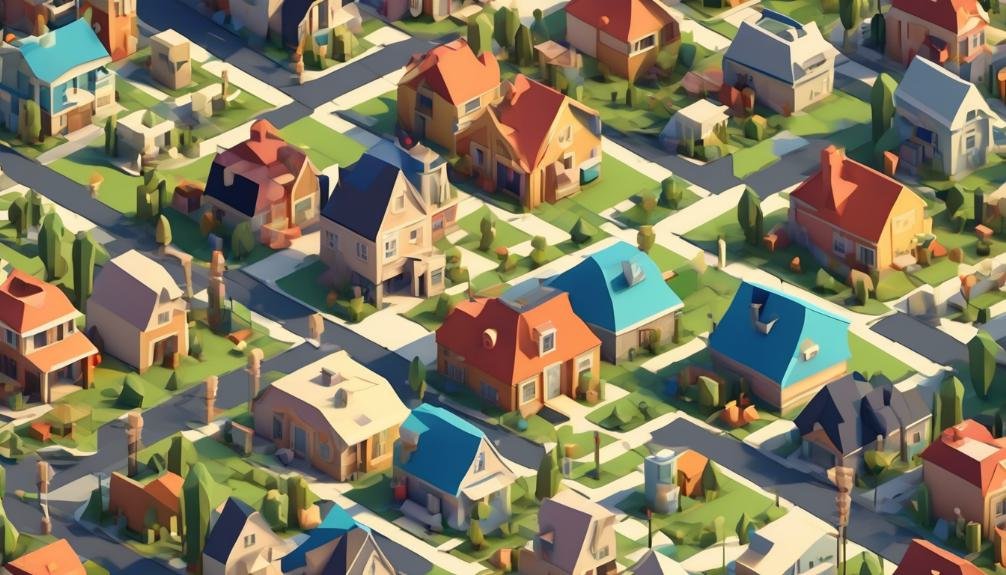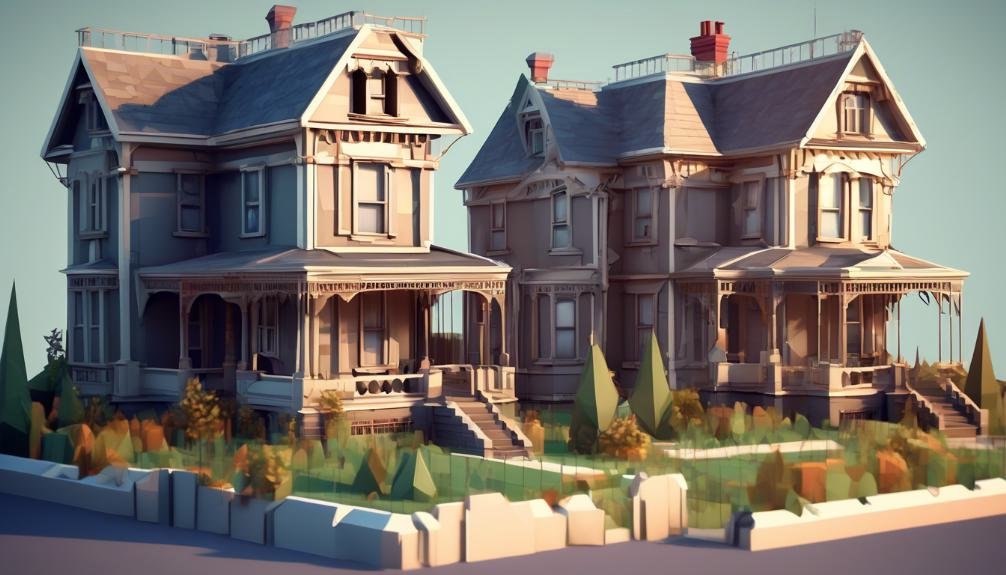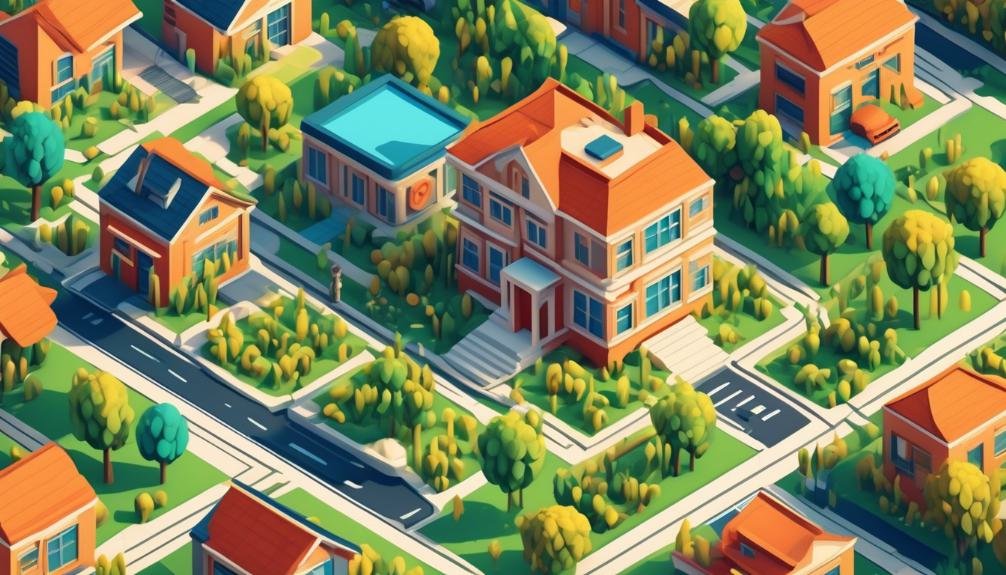When it's time to put your home up for sale, remember that it's not only about the place it's located. A lot of other things can affect how much your home is worth. Sure, the size and the state of your house are important, but the economy around you and trends in what people want can change the value too. Before you make this big money decision, you should know about everything that can change your home's price. For example, how good the nearby schools are can really matter to buyers, and even the style of your house can add or take away value. Knowing these things can help you sell your home for the best price possible.
Let's dig deeper into what can impact the value of your home. The economy in your area can play a big role. If jobs are plenty and incomes are rising, more people might be able to afford homes, pushing up prices. On the other hand, if the local economy is struggling, your home might not sell for as much as you hope.
Then there's the style of your home. A modern, well-designed house might attract buyers who are willing to pay more, while an outdated style could be less appealing. And don't forget about the schools. Homes in areas with top-rated schools often sell for higher prices because parents want the best education for their kids.
So, when you're getting ready to sell, consider all these things. Maybe you can't change the economy or the schools, but you can make sure your house is in great shape and looks modern. This could mean fixing up the kitchen or painting the walls to give it a fresh, new look. By taking care of these details, you can help ensure your home sells for a good price.
Location and Neighborhood

The value of your home is greatly influenced by where it's located and the kind of neighborhood it's in. This remains true no matter how much the housing market changes. The value tied to a property's location is crucial. It can make a house much more appealing, or it can do the exact opposite. When you think about your home's value, look at how close it is to important places like schools, shops, hospitals, and public transport. Being near these things makes life easier and can also raise your property's value.
Also, if a neighborhood is known for being safe, clean, and having active community members, more people will want to live there. It's not only the current situation that matters, but also what's planned for the future. If there are plans for new roads or businesses, your home might be worth more later on.
Understanding how your home's location and the neighborhood it's in impact its value is essential. This is true if you're thinking about selling your home or getting a new mortgage. It helps you make smart choices with your property.
Home Size and Layout
The size and design of your house are crucial in figuring out its worth because people look for a home that suits their space needs and day-to-day living. Generally, bigger homes cost more, but a smart design can increase a home's value too.
When you think about how big your home is and how it's laid out, remember how practical it is to live in. For instance, rooms that are too big or shaped weirdly might not be as good as rooms that are just the right size. Buyers prefer homes where space is used well, like a house with an open plan that makes it easy to move from one area to another, rather than a big house with lots of separate rooms.
Also, the number of bedrooms and bathrooms affects the value of your home. More bedrooms can be used for different things, like an office or a gym, and having more bathrooms makes life easier, especially if you have a house with more than one floor. Places to store things, like closets and garages, are important too, because they make a house more practical, which people like.
Let's make sure your home's size and layout work well for you and potentially for buyers in the future. For example, if you're looking to sell, consider if your three-bedroom home could benefit from converting an unused office space into a fourth bedroom, which could attract families looking for more sleeping areas. Or, if you only have one bathroom, adding a second one could make a big difference in your home's appeal and market value. Remember, it's not just about having space but making the best use of it.
Age and Condition

The age and state of your home are crucial when figuring out its worth. New homes usually have the latest features and need fewer fixes, which can increase their value. On the other hand, old homes might be charming but could make buyers worry about repair costs. What's important is not just the number of years the home has been around, but also how well it's been looked after.
Here's a simple list of factors that can affect your home's value:
- Recent Improvements: If you've made upgrades, especially in important places like the kitchen or bathroom, it can make the home's age less of a concern.
- Ongoing Upkeep: Keeping up with things like fixing the roof or checking the heating and cooling systems helps keep the home working well.
- Bringing Back the Past: For homes with history, making them look like they did originally, while adding modern comforts, can make them more valuable.
- Saving Energy: Homes that use less energy, whether they're new or have had work done to save energy, are often worth more because they'll cost less to live in over time.
When you're trying to figure out how much your home is worth, try to think like a buyer. Look at the actual features of your house that matter to someone else. The age and how well your home has been cared for, along with any smart updates you've made, can really change what it's worth.
Remember to use simple language, avoid clichés, give reasons why things are important, and make sure your writing flows smoothly. Use an active voice to be clear, bring in specific examples or products when they help explain something, and write like you're having a conversation. Lastly, give plenty of details to give a full picture of what you're talking about.
Market Trends and Economy
It's important to know that the age and condition of your home play a big part in its worth, but it's just as important to pay attention to the bigger picture. The housing market can change because of things like job numbers, interest rates, and how well the economy is doing.
For example, when lots of people have jobs and feel good about the economy, they're more likely to buy houses. This can make house prices go up. But when there are more people without jobs or when prices for things go up a lot (that's called inflation), fewer people might want to buy houses. This can make house prices stop growing or even go down.
Interest rates are super important too. When they're low, more people can afford to get a loan for a house, so more people might want to buy one. This can make house prices rise. But when interest rates go up, loans get more expensive and fewer people can buy houses. That can make the market cool off and house prices might drop.
To make smart decisions about your home, you should keep an eye on things like how many houses are for sale in your area, how long they're taking to sell, and if they're selling for the asking price or not. This info helps you figure out if it's a good time to sell your house or if you might want to wait.
Remember to write in a way that sounds like a real person, be detailed, and give specific examples when they can help explain something better.
Upgrades and Renovations

When you update your home with new features and make smart changes, you don't just make it look better and work better; you also might make it worth more. If you live in Shippensburg and you're fixing up your home, think about both enjoying your space now and how much money you could get if you sell it later. The right changes can really grab buyers' attention and let you ask for a higher price.
Here are some smart updates to think about:
- Redo the Kitchen: Buyers often want a kitchen that's up-to-date and works well. If you put in quality appliances, strong countertops, and plan the space smartly, your home will be more inviting.
- Freshen Up the Bathroom: A bathroom that looks old can turn people off. Even small things like new taps or a new paint job can make a big impact. If you do a full makeover, your home's worth could go up a lot.
- Make it More Energy Efficient: Things like windows that keep heat in, better insulation, and heating and cooling systems that use less energy are good for the planet. They also appeal to buyers who want lower bills.
- Improve the Outside Look: How your home looks from the street is really important. Neat gardens, a well-kept outside, and a welcoming front door can make people think your home is worth more, even before they come in.
Putting money into these parts of your home can really pay off, making the Shippensburg home improvement scene better and giving you a financial boost if you decide to sell.
For example, if you're redoing your kitchen, consider appliances like the Samsung Family Hub refrigerator that can help with meal planning and grocery shopping. In the bathroom, installing a Delta Faucet with Touch2O technology can give a high-tech feel. For energy efficiency, the Nest Learning Thermostat can help manage heating and cooling costs. And for curb appeal, planting low-maintenance but eye-catching perennials can keep your garden looking great with less work.
Conclusion
When you're looking to understand the value of your home, it's important to consider a variety of elements. Whether your home is large or small, old or newly renovated, its value will be influenced by the housing market and the characteristics of your neighborhood. It's critical to be well-informed, as the worth of your home is not only determined by its structure but also by the area it's in. If you make smart decisions, you can ensure your home sells for the best possible price.
Let's break it down: the size and condition of your house are obvious starting points for assessing its value. But also, think about its location. Is it in a sought-after school district? Close to amenities like parks and shopping centers? These factors can significantly boost your home's appeal to buyers. Additionally, economic trends, such as interest rates and employment rates, can affect how much people are willing to pay for a house.
For example, if your home has energy-efficient appliances, that's a selling point you'll want to highlight. Or if you've installed smart home technology, such as a programmable thermostat or a security system, these features can make your home more attractive to potential buyers.
In summary, when you're ready to sell your home, consider its features and location, stay informed about the market, and highlight the aspects that make your home a great investment. By doing so, you'll be in a strong position to get the best possible price for your property.

